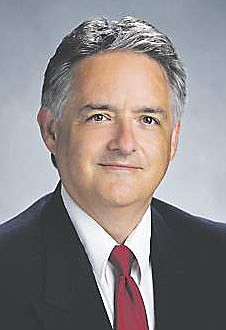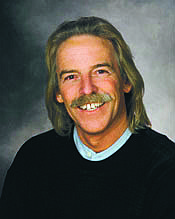Cd'A Council members do double-duty as liaisons
COEUR d’ALENE — The new year brings a new City Council to Coeur d’Alene. Each new calendar brings changes to how the city approaches its constituents. However slight those changes might seem, they can have a big impact.
Take, for example, committees. As a new council looks ahead — with longtime representative Ron Edinger now retired and newly elected Christie Wood now sworn in — each committee has been assigned a council liaison: someone to communicate a group’s recommendations or decisions, as well as someone to express or clarify the council’s concerns and strategies.
During Tuesday’s council meeting, Mayor Steve Widmyer reported the new year’s official liaisons to the city’s and area’s different committees.
Councilmember Amy Evans will continue her run with the Arts Commission, the Pedestrian and Bicycling Commission, the City Legislative Committee and CDA 2030.
Dan Gookin will again work with the Kootenai Metropolitan Planning Organization.
Woody McEvers will extend his service with the CDA TV Committee, as well as serve as liaison with EMS and the Lake City Center.
Dan English will take over liaison duties for the Parking Commission and ignite cda.
Wood will jump in by serving as liaison on the Tubbs Hill Foundation, the Sick Leave Bank, as well as Parks and Recreation.
Widmyer will continue to serve as liaison to Jobs Plus and the Governor’s Workforce Development team.
Kiki Miller will continue her service on the Library board, but she will also helm liaison duties for the newly minted Historic Preservation Commission.
It sounds minor, and maybe it is. But the liaison can have a significant impact on the direction a committee can steer.
“It’s a little tough sometimes,” McEvers said. “We have all these different personalities on the council, but we want to accurately understand and report what’s going on.”
While councilmembers serving on other committees — or anyone else, for that matter — has access to read the minutes of a committee meeting, the liaison’s job includes being able to better understand the material than what can ordinarily be found on a page. McEvers said that responsibility has changed as the workload has grown.
“Liaison has changed a lot,” said McEvers, now in his 18th year on the council. “We used to be a lot more involved with departments back in the Sandi Bloem [administration]. We had one or two departments, and we’d just absorb ourselves in to learn how that department would operate. You spend time in there. You create trust. You can talk to department heads and get a little more insight. We don’t really do that as much anymore. The structure’s changed.”
The mayor doesn’t agree.
“I don’t see that there has been much of a change over the years,” Widmyer said. “Councilmembers understand that they are part of a group, and their involvement is just to be a contributing member to the committees.”
McEvers emphasized the change wasn’t a critique of Widmyer’s administration, but more a reflection of how time management has altered a liaison’s landscape. Liaisons used to be able to dive into department operations and get their hands dirty. In some cases, literally.
“I remember with the Water Department, I went out and got in the dirt and dug a hole. They brought me a shovel … and gloves … and I went out on 15th Street with them and got a firsthand experience of what that was like. It’s like going on a police ride-along: You see the world from a whole different perspective.”
That change in perspective does not come without its concerns. Councilmember Miller has been working on a plan to present to council to clarify the city’s responsibilities when doling out assignments.
“Let’s say there’s a councilmember who’s really into horticulture and takes part in a horticulture club,” Miller hypothesized. “Now that horticulture club has a councilmember who regularly attends their meetings. What can happen is, a future council might think they have to assign somebody to this club as a new subcommittee under the Urban Forestry Committee. That might become an appointment, when there was really no statute requiring it.”
To more carefully manage the council’s role in city workings, Miller is planning to clarify the government’s statutory responsibilities in organizations around the area. She emphasized the goal isn’t to expel organizations from access, but rather to allocate taxpayer resources according to statute and need, rather than whim.
“These relationships have all been good for the community,” Miller said, “but you do have to be clear to the community what is required by statute and what is voluntary, what is mandated and what is voluntary.”













